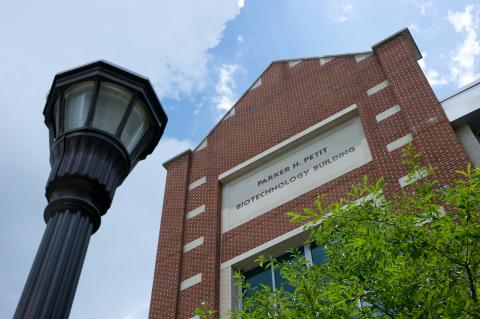event
2016 Suddath Symposium - Mechanobiology of the Cell
Primary tabs
Mechanobiology of the Cell
Considerable experimental evidence acquired during the last three decades has now established that physical forces have a profound influence on cellular physiology. Cells can sense the mechanical cues of their environment, such as forces and matrix stiffness, and use this information to guide their behavior, such as proliferation, differentiation, apoptosis, motility, and modification of their environment, thereby shaping their fate and function. Mechanotransduction can also serve as a conduit for information transfer between pairs of cells and also among groups of cells within a tissue. We are just beginning to understand how these interactions control systems level behavior in both normal and diseased states.
The distinguished speakers in this year’s Suddath Symposium will describe exciting new conceptual and technological advances in mechanobiology. Topics include: 1) Mechanosensing in the context of cellular differentiation, homeostasis, and disease, 2) Mechanotransduction during tissue development and repair, 3) Mechanical properties of cell-cell interfaces and their functional consequences, 4) Novel tools for the analysis of cellular mechanics both in vitro and in vivo. The Symposium will promote wide-ranging discussion of both the key biological questions facing the field and the technologies that will enable investigators to address them, thereby providing essential knowledge for anyone hoping to make an impact on fundamental and applied bioscience.
The Suddath Symposium is a two day event held annually to celebrate the life and contribution of F.L. "Bud" Suddath by discussing the latest developments in the fields of bioengineering and bioscience.
Confirmed speakers:
Thomas Barker - Georgia Tech
Dennis Discher - University of Pennsylvania
Ross Ethier - Georgia Tech
Andrés García - Georgia Tech
Hanjoong Jo - Emory University
Andrew Kowalczyk - Emory University
Wilbur Lam - Emory University
Matthew Lang - Vanderbilt University
Ellis Reinherz - Harvard Medicine School
Khalid Salaita - Emory University
Martin Schwartz - Yale School of Medicine
Valerie Weaver - University of California, San Francisco
Cheng Zhu - Georgia Tech
Symposium Chairs: Andrés García, Ph.D. and Cheng Zhu, Ph.D.
Early registration $25 through February 4, 2016 - all attendees
On-site registration $40 - all attendees
Suddath Symposium website
The 2016 Suddath Symposium is supported by the Parker H. Petit Institute of Bioengineering & Bioscience at Georgia Tech.
The Parker H. Petit Institute for Bioengineering and Bioscience, an internationally recognized hub of multidisciplinary research at the Georgia Institute of Technology, brings engineers, scientists, and clinicians together to solve some of the world’s most complex health challenges. With 17 research centers, more than 170 faculty members, and $24 million in state-of-the-art facilities, the Petit Institute is translating scientific discoveries into game-changing solutions to solve real-world problems.
Groups
Status
- Workflow status: Published
- Created by: Colly Mitchell
- Created: 08/26/2015
- Modified By: Fletcher Moore
- Modified: 04/13/2017
Categories
Keywords
Target Audience

